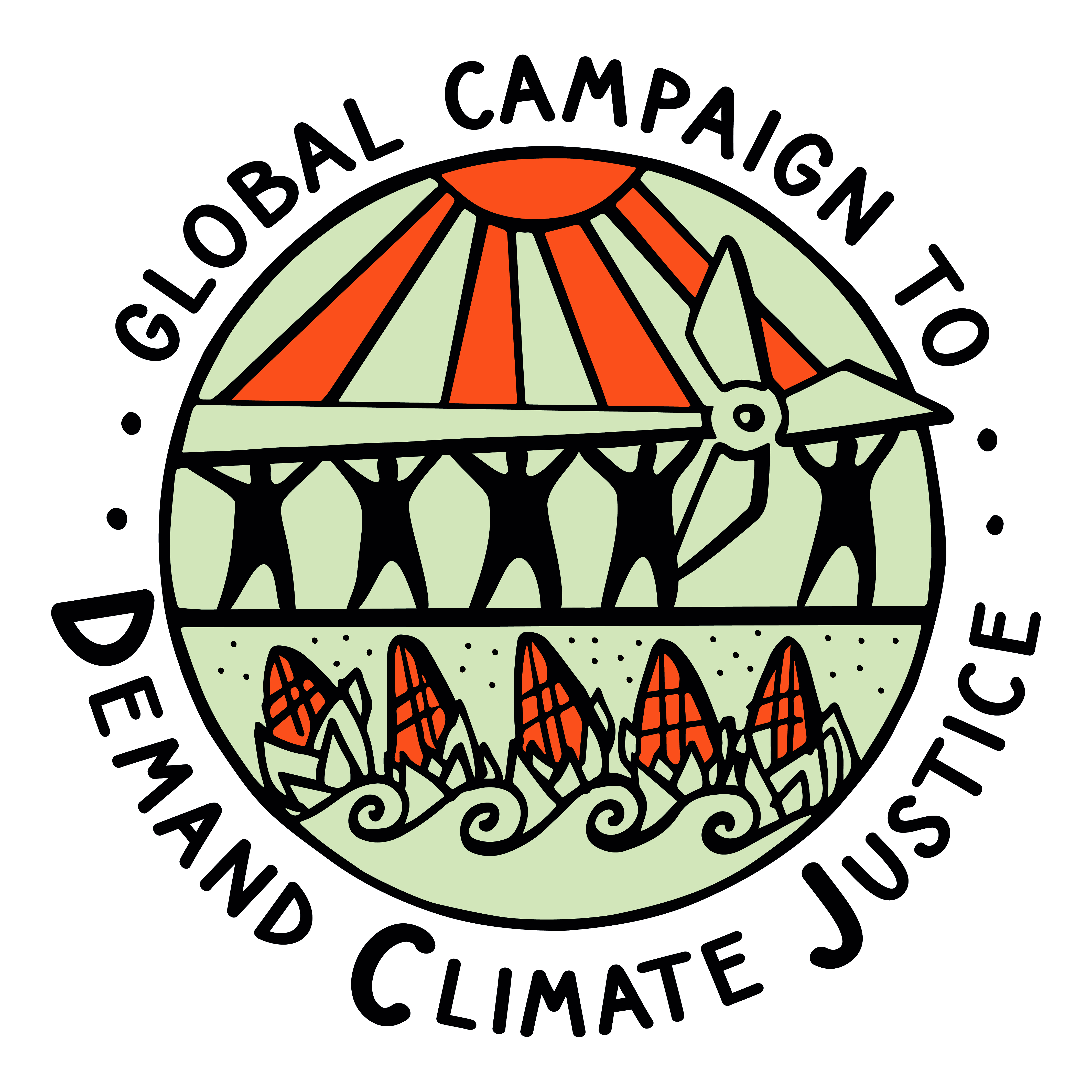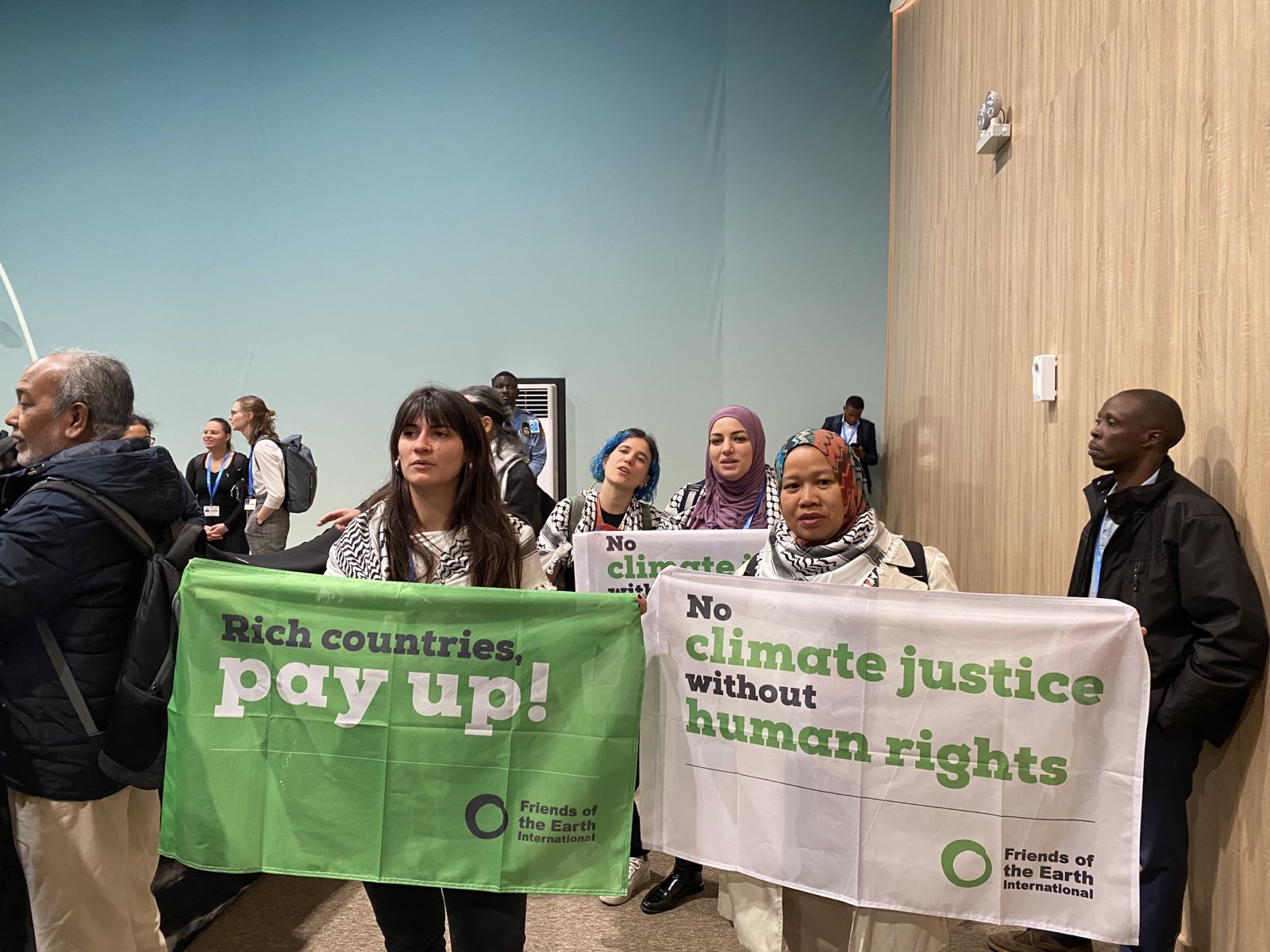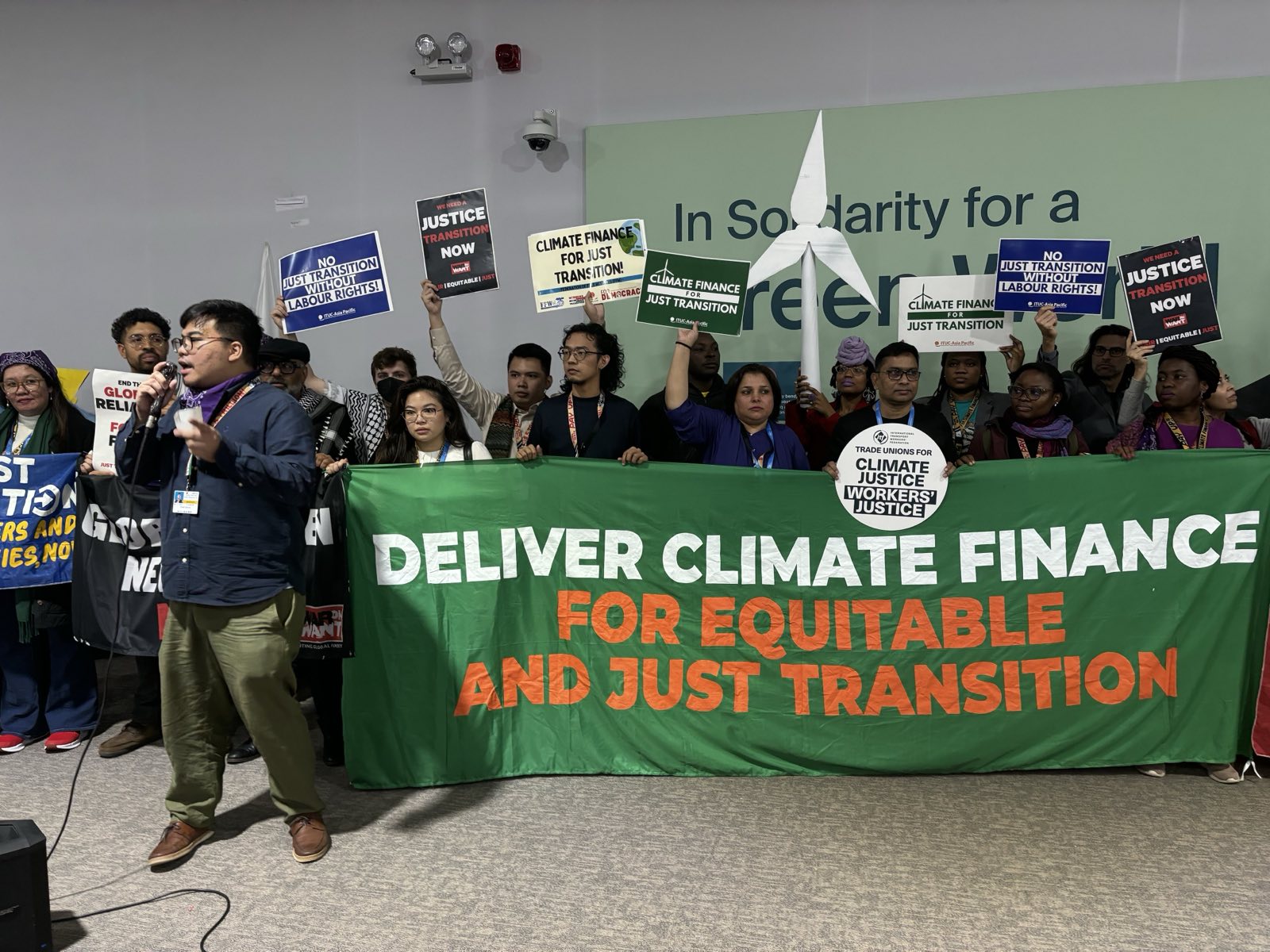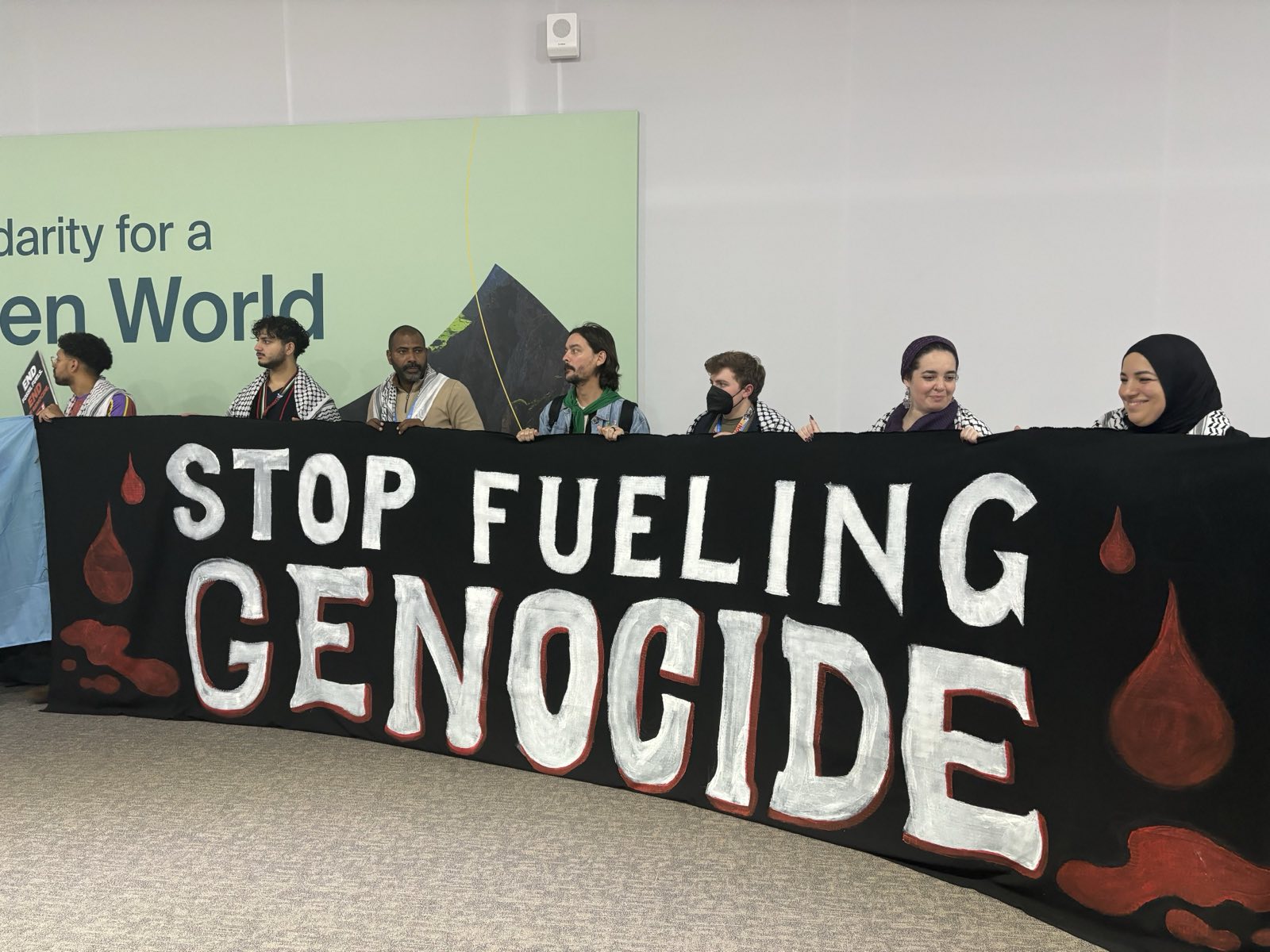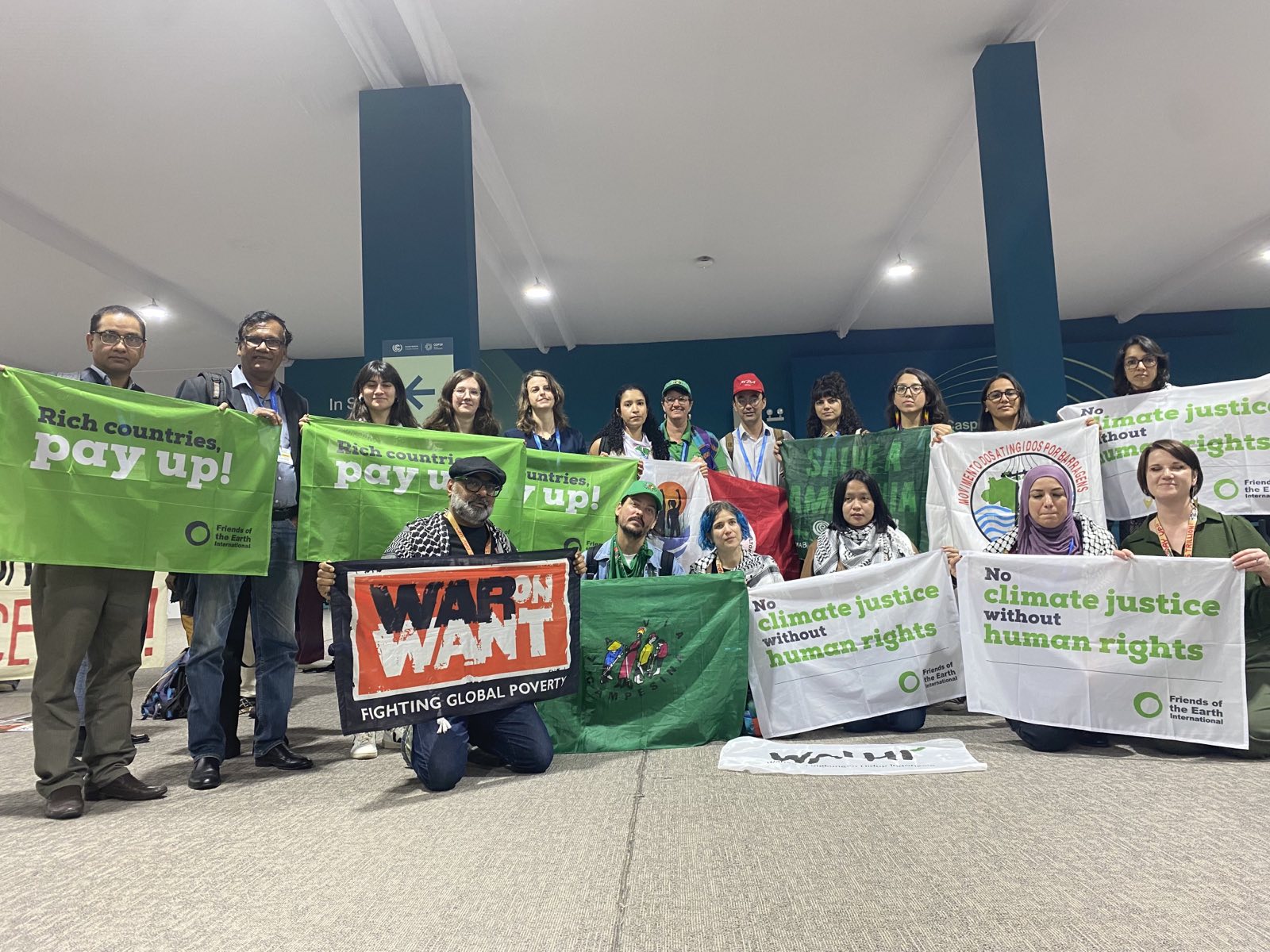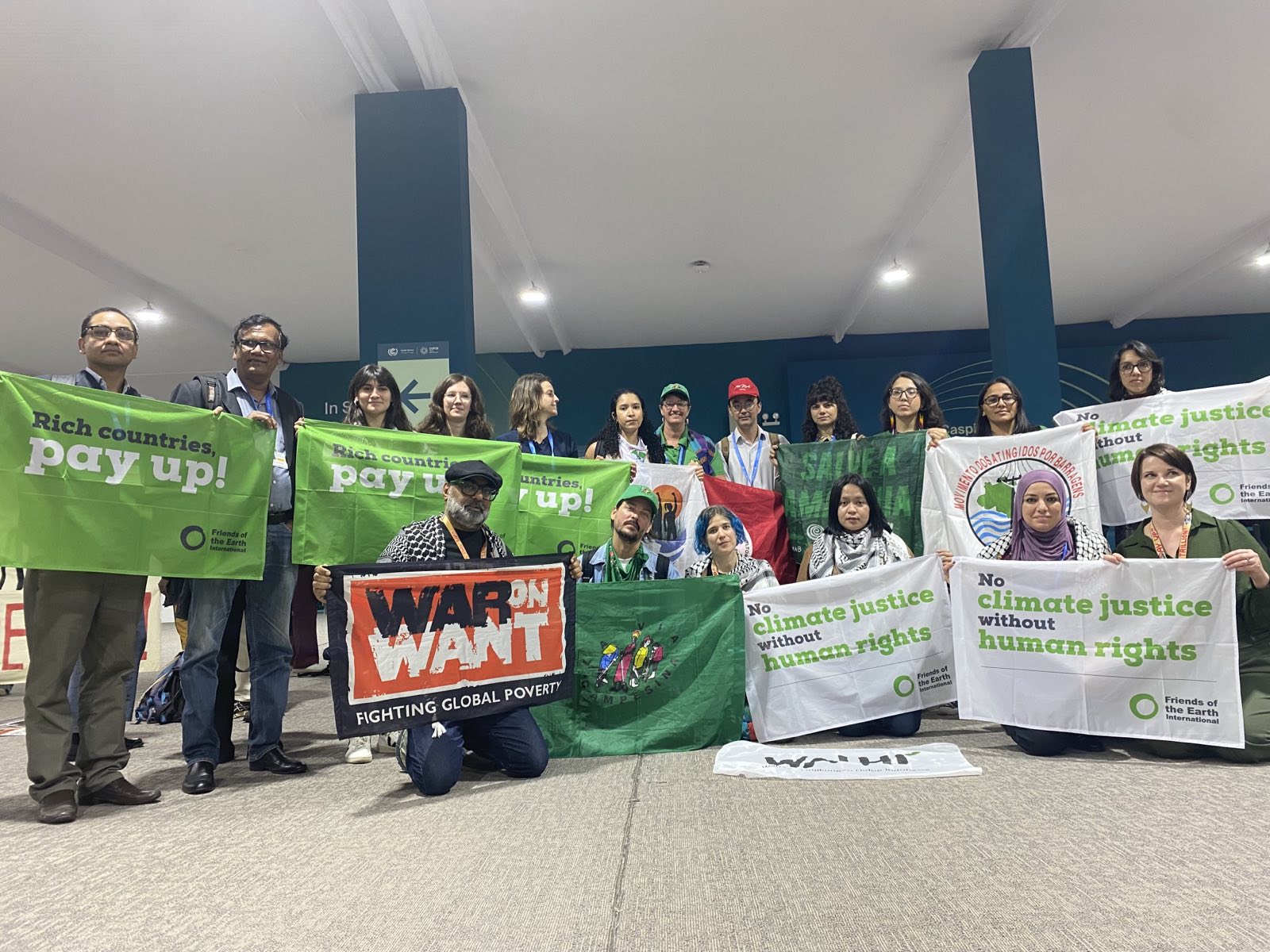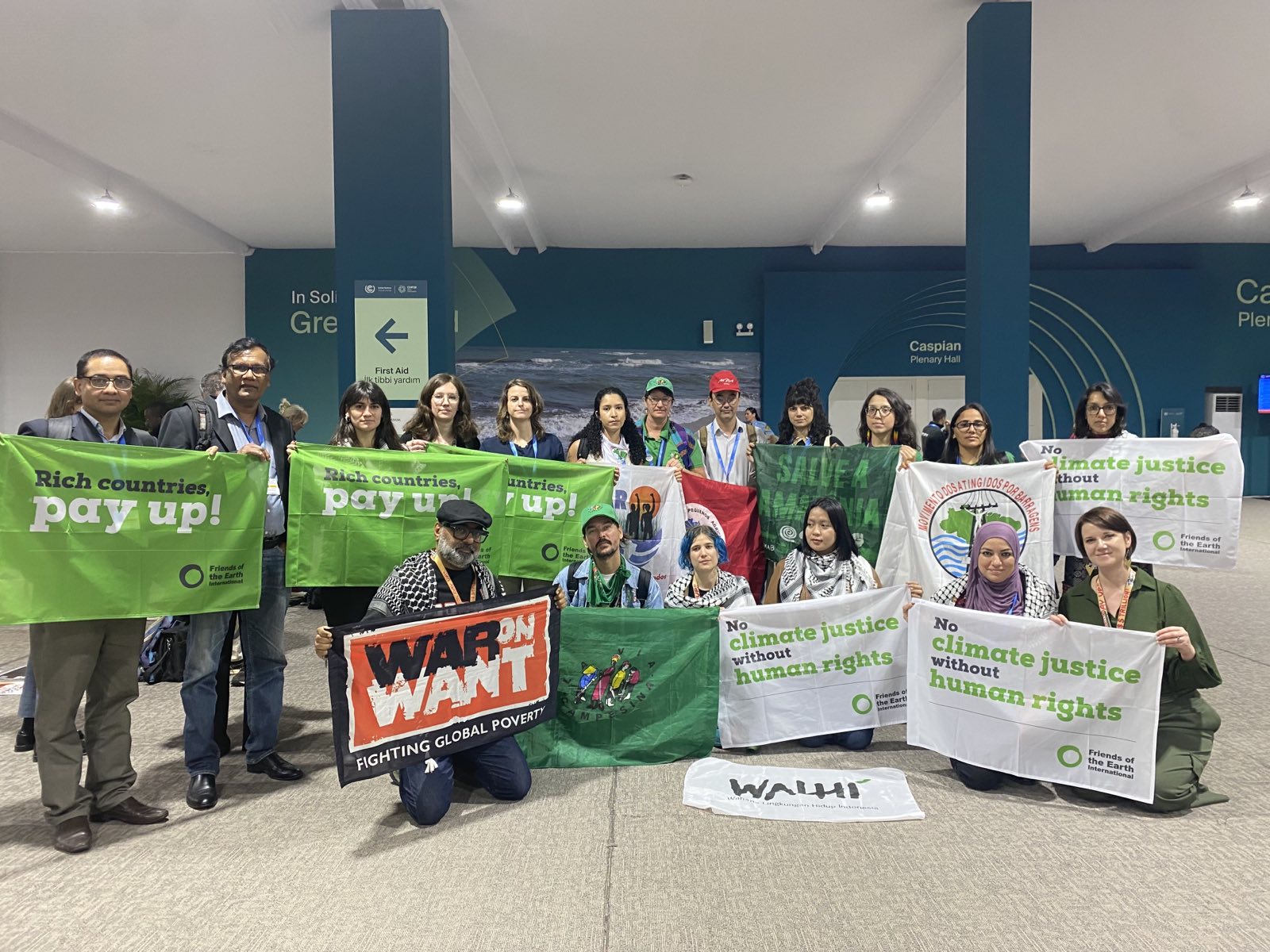Climate Activists Demand Climate Finance for the Transformation of Food Systems
The Global Campaign to Demand Climate Justice
(DCJ) PRESS RELEASE:
BAKU, AZERBAIJAN, 19 NOV 24 – Activists from across the Global South called for an urgent action on food systems for climate justice in the face of COP29 failing to deliver much urgent climate finance for just transition and transformation of food systems including building climate-resilient food systems.
Vince Cinches from World Animal Protection opened the action stating, ‘Industrial agriculture is the leading driver of animal cruelty, environmental destruction, and climate chaos, exploiting people and jeopardising our shared future. We stand united against a system that prioritises profit over workers, animals, communities, and the planet. It drives the climate crisis, erodes biodiversity, and inflicts unimaginable suffering on billions of animals. At COP 29, we call for bold action to transform food systems—placing animal welfare at the centre, reducing emissions, and advancing equitable, sustainable solutions that prioritise people and the planet over corporate greed. We cannot meet climate targets without a Just Transition in food systems. World leaders must commit to ending factory farming and building equitable, humane, and sustainable food systems that protect animal welfare, empower communities, and ensure food justice for all’.
The action comes at a time when food systems around the globe are facing negative impacts from higher temperatures, drought, variable rainfall, invasive pests, and extreme weather events, which are expected to worsen as climate change progresses. Meanwhile, the global food system is a significant contributor to climate change, responsible for a third of human-caused greenhouse gas emissions and over 15% of annual fossil fuel use. The UNEP’s 2022 Emissions Gap Report highlights that stabilising climate change requires significant cuts in food system emissions, and the IPCC warns that even if fossil fuel emissions stopped immediately, food-related emissions alone could prevent reaching the 1.5ºC and 2ºC targets.
Chanting ‘Our right to food is not for sale’, activists decried how little world governments are doing to prevent climate impacts from food production. Rachel Sherrington from Desmog highlighted the responsibility on big agriculture and polluters, ‘My reporting shows that the big lobby has a sustained and significant presence at COPs, and is using summits to promote solutions that will prolong the status quo’ followed by Leody Velayo from Scientist Partnership for Development (Masipag) who declared, ‘We farmers are the solution to the climate and food crises, with our farmer-led agroecology and indigenous seeds. But how can we fulfil this role when policies, programs, and even spaces like COP29 are co opted by large corporations—those who destroy our environment, monopolise our seeds, and dictate how we farm? Empower the farmer, and you empower the real solution.’
The action emphasised the need for climate finance to enable a radical shift is essential—from carbon-intensive, corporate-driven agriculture to humane, just, sustainable, and climate-resilient agroecological systems. Such systems should focus on producing adequate, nutritious, and accessible food for all, with an emphasis on meeting communities’ staple needs for domestic consumption. The activists joined the call for Global North governments to Pay Up for their historical role in destroying food systems, and to enable the just transition of food systems.
Prayash Adhikari, Digo Bikas Institute/Asian Peoples’ Movement on Debt and Development, concluded the action by urging for actioning real solutions that promote ground up community leadership and food sovereignty. ‘I come from the land of mountains, where we used to live in harmony with nature. Now we are at the forefront of the climate crisis. This is not justice, why should our communities who have not even contributed to and have been protecting and conserving nature have to pay the burden of climate catastrophes. The food system after the green revolution promoted by big agribusinesses is one of the main drivers of the climate crisis we are facing; not the circular peasants based agroecology food system that our community was practising.’
Images: Here
CONTACTS:
Pang Delgra | Asian Peoples’ Movement on Debt and Development | [email protected] | +639178310513
Elodie Guillon | World Animal Protection | [email protected] | +33678125161
Andrea Echeverri | Global Forest Coalition | [email protected] | +57 311 6171939
Esthappen | Global Campaign to Demand Climate Justice
[email protected] | +919820918910
